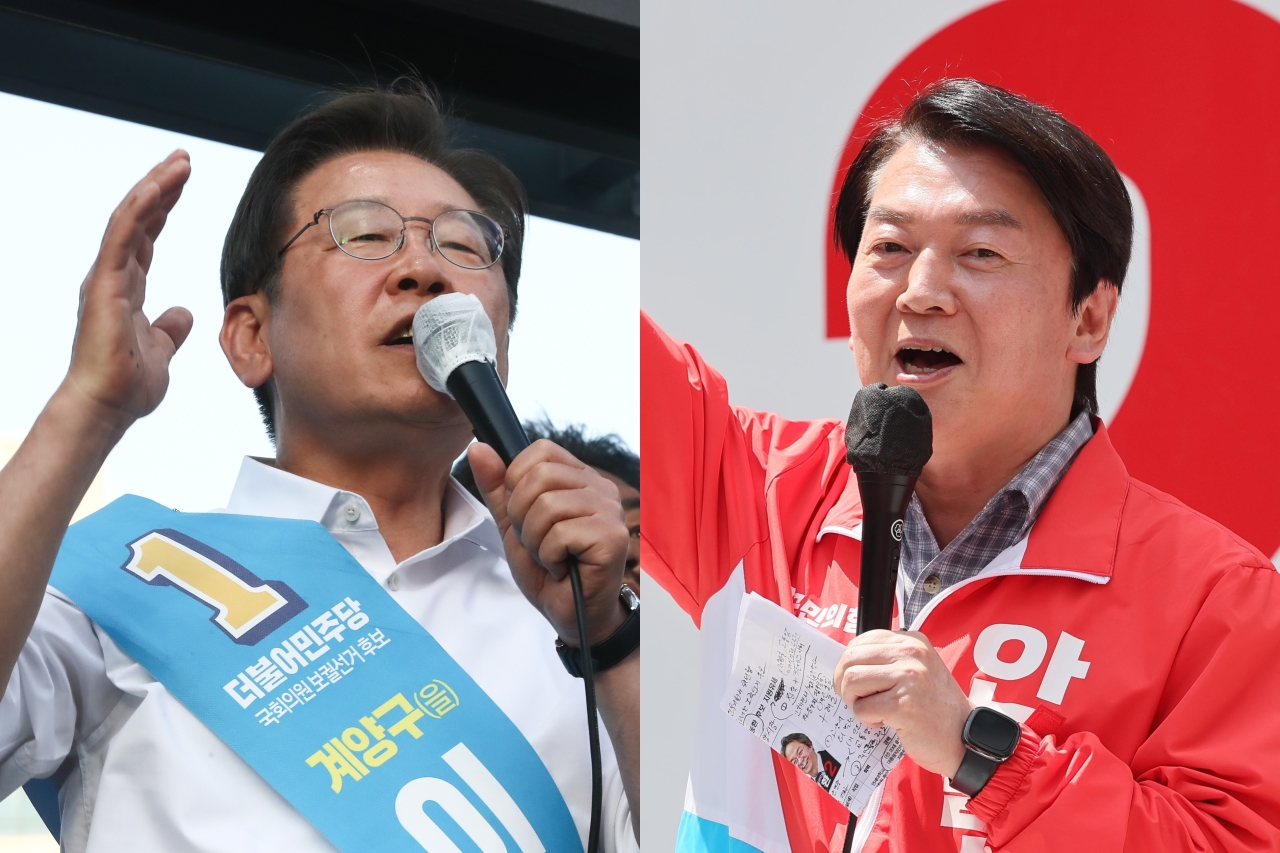[From the Scene] Voters cast ballots to support new administration, or hold it in check
Ex-presidential hopefuls eye National Assembly seats
By Kim ArinPublished : June 1, 2022 - 16:07

Voters on Wednesday went to polling stations for the local elections as rival parties hoped for a favorable outcome with each claiming that support for their candidates would impact the future of the country.
While the ruling People Power Party hoped to pull out wins over the Democratic Party of Korea to give the new administration a needed boost, the main opposition party aimed to make up for its loss in the March 9 presidential election.
The divergence was also apparent among voters who visited polling places, beginning from the early morning Wednesday.
“I only considered which party the candidates are from when casting my vote,” a woman in her 50s, surnamed Lee, said in front of a polling station located in Incheon, adding that she is not a big fan of elections.
A 36-year-old man surnamed Son in Nowon-gu, northern Seoul, said, “I voted in hopes that the ruling party and the main opposition party could strike a balance.”
In terms of the mayoral election in Seoul, many voters anticipated that Oh Se-hoon of the People Power Party would win over the main opposition party’s Song Young-gil, regardless of which party they supported.
Voters at the polls pointed to housing issues as the most pressing concerns they wanted the next mayor to work on.
“There are many housing issues (that the next mayor should try to solve), including rising housing costs and a lack of quality housing options for the younger population,” said Park, a female voter aged 29.
Nam, 49, said, “Regardless of which side wins, I hope that candidates keep their promises regarding the supply of rental housing.”
Across the country, people voted to decide on their future mayors, governors, local council members and regional education chiefs.
But with so many candidates on the ballot, some voters complained of difficulties when reviewing the details of every candidate, such as their respective backgrounds and policies.
“I thought I should cast a vote to make the country a better place,” a voter surnamed Lee, 26, said when asked why she came out. However, she added she could not go over all the details in the informational pamphlets because there was too much to read and check.
A Korean Chinese voter surnamed Li, 24, said she was aware of the negative perspective that a number of people here have about foreign permanent residents having the right to vote. “Some people talk behind my back when I say I vote in the local elections.”
Li said that she thinks she is eligible since the law allows foreign nationals who have lived in the country for three or more years after obtaining permanent residency to vote in local elections. “I feel I should vote even more so since I also pay taxes in Seoul.”
In South Korea, there are currently about 126,668 foreign nationals who are eligible to vote in local elections. Of the total, 99,969 are Chinese, accounting for 78.9 percent.
However, while the total number of foreign nationals eligible to vote is significant, few have actually gone to the polls in past local elections.
“I think not many foreign nationals, especially those from China, use their right to vote in South Korea because candidates in the local elections usually make policy decisions that are not in favor of Chinese living in the country,” Li said.
Gyeyang: Democratic Party seat at risk of flipping
In Gyeyang-gu, Incheon, a traditionally left-leaning and low-profile electorate, a sense of betrayal was palpable among voters.
Democratic Party Rep. Song Young-gil, who represented the district for a total of five terms, left his seat to run for Seoul mayor instead. In Song’s place, Lee Jae-myung, fresh off his narrow defeat in the March presidential election to Yoon Suk-yeol of the People Power Party, announced a surprise bid last month.
Lee matched up against the People Power Party’s Yun Hyung-sun, who has been a local doctor for more than 25 years. The race turned out to be unexpectedly competitive, with Lee ahead by only a thin margin.
On Lee running for the Gyeyang-gu constituency, a 24-year-old, who wished to remain anonymous, said, “He probably thought he could count on Gyeyang-gu people’s loyalty (to the Democratic Party).”
Han Kyu-hyeong, 22, said although he didn’t have a particular preference, he was considering the “balance of seats in the National Assembly...Right now the balance is tipped in one side’s favor, and I don’t think that’s good for our democracy.”
Bundang: Easy victory for political bigwig?
In a Bundang-gu constituency of Seongnam, Gyeonggi Province, another former presidential candidate -- Ahn Cheol-soo -- was vying to enter the National Assembly. Ahn, who ended his presidential campaign just before the finish line in March to support Yoon, was outpolling his Democratic Party rival Kim Byoung-gwan in polls by around 58 percent versus 28 percent.
Bundang is neither predominantly liberal nor conservative, having elected candidates across the political spectrum in the last three parliamentary elections. Kim had held a seat here after beating a People Power Party opponent in 2016.
A 36-year-old Bundang native said, “I think the two major parties should check and balance each other.”
Hwang Dong-hee, Lee Yun-seo, Lee Jung-youn and Lim Jae-seong contributed to this article.








![[Hello India] Hyundai Motor vows to boost 'clean mobility' in India](http://res.heraldm.com/phpwas/restmb_idxmake.php?idx=644&simg=/content/image/2024/04/25/20240425050672_0.jpg&u=)










